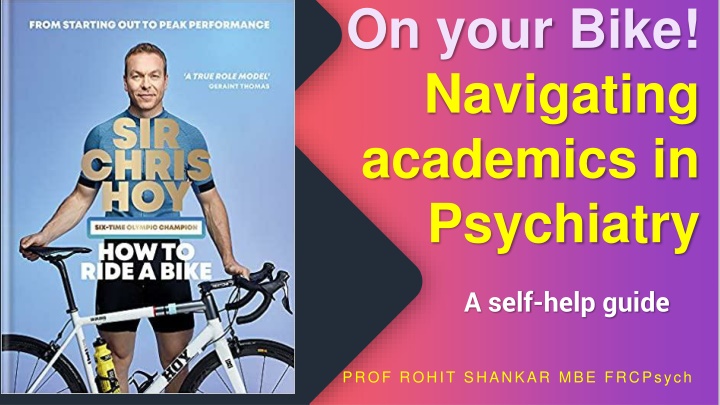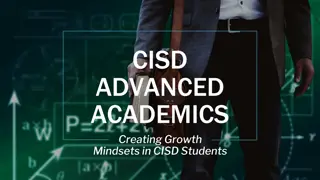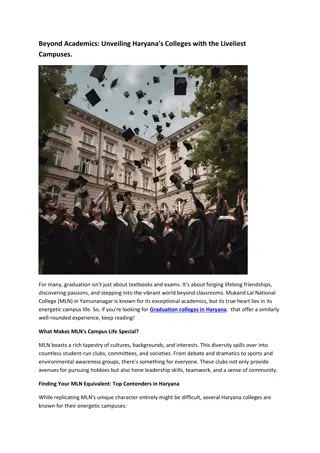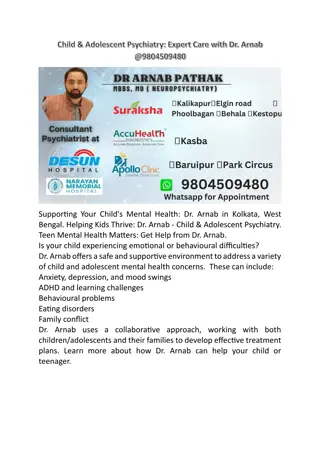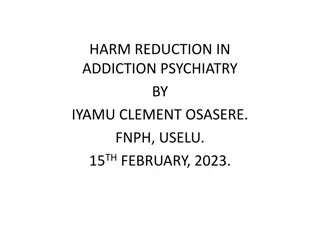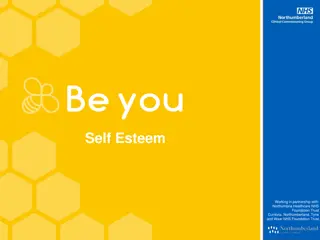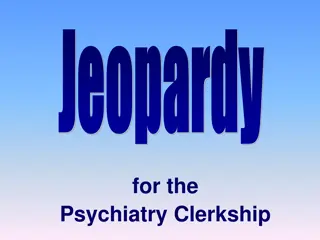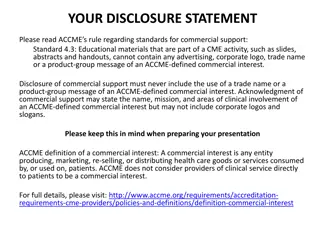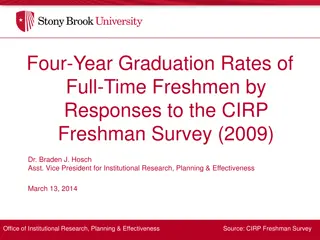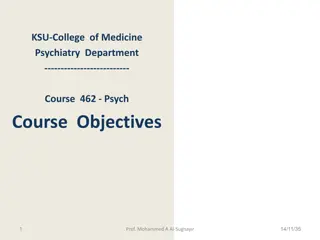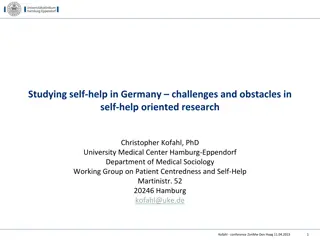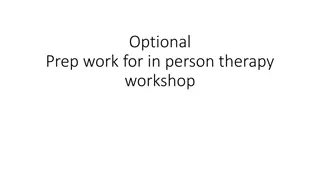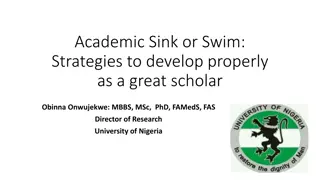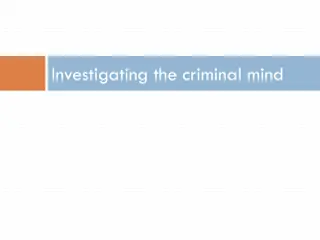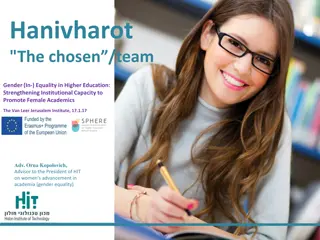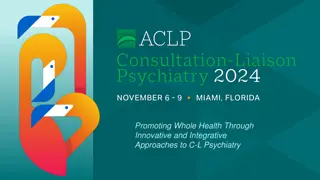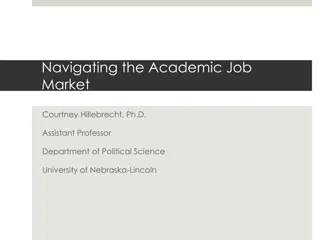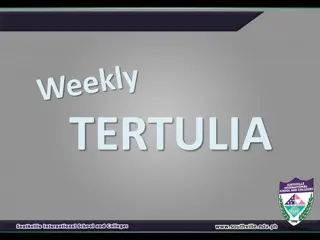Navigating Academics in Psychiatry: A Self-Help Guide
This self-help guide by Prof. Rohit Shankar discusses the vision of including all doctors in research, the different routes to support research, academic clinical fellow/lecturer programs, and the benefits of varied approaches in psychiatry academic training. It emphasizes the essential role of doctors as scientists and the importance of personalized medicine. The guide also delves into challenges, opportunities, and strategies to facilitate research involvement in the field of psychiatry.
Download Presentation

Please find below an Image/Link to download the presentation.
The content on the website is provided AS IS for your information and personal use only. It may not be sold, licensed, or shared on other websites without obtaining consent from the author.If you encounter any issues during the download, it is possible that the publisher has removed the file from their server.
You are allowed to download the files provided on this website for personal or commercial use, subject to the condition that they are used lawfully. All files are the property of their respective owners.
The content on the website is provided AS IS for your information and personal use only. It may not be sold, licensed, or shared on other websites without obtaining consent from the author.
E N D
Presentation Transcript
On your Bike! Navigating academics in Psychiatry A self-help guide PROF ROHIT SHANKARMBE FRCPsych
DISCLOSURES Professor Shankar has received institutional / research support, lecture and consultation fees in the last 2 years from various government, charity and pharma No cyclists or cycles were harmed in the preparation of this talk 2
CONTENTS THE CONSTITUENT PARTS OF THIS TALK THE TIMELINE What happens next? THE VISION THE DIFFERENT ROUTES A review of current pathways PSYCHIATRY TRAINING How can we support the vision? THE GAP All about challenges The broad church of academics
THE VISION EVERY DOCTOR IS A SCIENTIST & SHOULD BE INVOLVED IN RESEARCH ESSENTIAL - FACILITATORY DESIRABLE - PARTICIPATORY Essential to apprise evidence critically Precision medicine Essential to teach and communicate science as medical leaders Personalised medicine Essential to give patients choice and options
THE DIFFERENT ROUTES SUPPORT RESEARCH RECRUIT TO EXISTING PORTFOLIO STUDIES Intimidating ALIGNMENT WITH YOUR INTERESTS DO A HIGHER DEGREE/ WRITE A PAPER Not everyone s interest BRING SKIN TO THE GAME SPECIAL INTEREST SESSIONS & MENTORS Thick skin needed INTEGRATED ACADEMIC TRAINING WALPORT REPORT Prepare for failure
ACADEMIC CLINICAL FELLOWS/LECTURERS THE PROGRAMME SUPPORTS RESEARCH EXPERIENCE WHEN IN CLINICAL TRAINING DURATION 3 to 5 years: 25% time REQUIREMENT Early stages of speciality training REQUIREMENT Demonstrate outstanding potential VERY COMPETITIVE Approximate 400 places
PSYCHIATRY ACADEMIC TRAINING WILL BENEFIT FROM A VARIED SET OF APPROACHES new science development Diminishing academic numbers Patients lose out Significant unique medical opportunities Newer medication Large fertile testbed neuroscience to psychotherapy Complex need
BUT WE NEED YOU SO SUCK IT AND SEE? Identify a mentor: Topic and area of interest Join Academic Faculty Connect to established academics in universities in your local area More serious work: Consider an higher academic degree ACF application Natural Language processing Build your area of interest: Case series/case report/Literature reviews Apply for a small grant charity supported Get engaged: Offer data collection or roles in larger projects Become visible: Contact the local research team for PI/ co-PI work Research implementation & income generation
AS DOCTORS YOU HAVE A DUTY TO PARTICIPATE IN RESEARCH with a view to improving patient care and supporting your team Formal Route ACF/ACL Higher degree 1 Non Formal route Less effort, less structured but at your pace 2 Think 30 years What skillset & skill diversity would you like? 3 Support research implementation Networks need establishing Trust, College (Division faculty), NIHR, Schools I 4
The Thinking as per the Gospel of Rohit Personalized Holistic Care Psychiatric -medical strategies Social-environmental change Technology AI & Apps Medication Big Data Genetics Co-production 10
